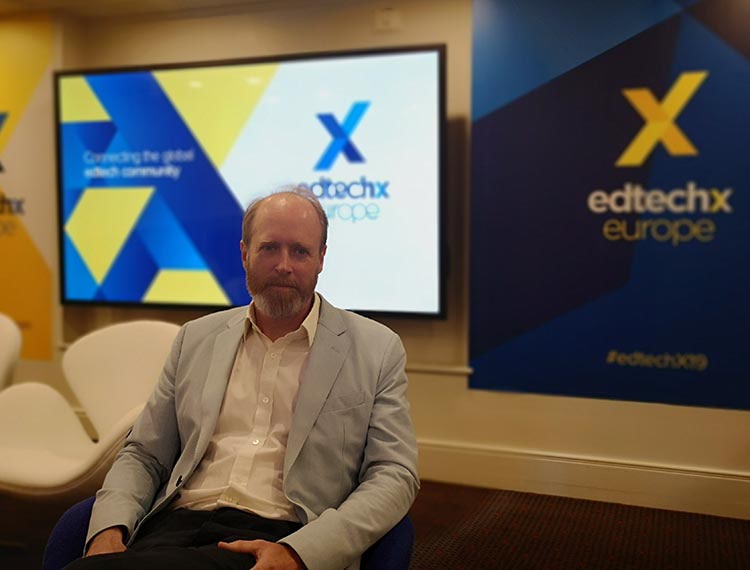How Investment in #EdTech is Driving Innovation in Education and Learning

The education technology “EdTech” market is something that, particularly in Europe, is highly fragmented and there are a lot of young companies.
We looked back at some of the EdTech startups that have been happening, what’s interesting is that actually it was about five years ago which was the golden year of EdTech startups around the world, but also here in Europe.
Our perspective is trying to work out how to make sure those businesses are properly funded, because without the funding they will not grow into the businesses that can help make a real difference to the future.
In Europe we sadly are struggling as it compares to other parts of the world. China is really the dominant leader in funding new EdTech business, the US follows behind them, and then in a poor third we have Europe.
Systemic support for young EdTech business
I think part of the reason is that we’re good investing in businesses that are slightly bigger. But we’re not very good at investing in really young businesses.
Those businesses tend to depend on accessing capital from either small specialised funds, or from high net worth individuals who are using tax breaks like EIS, and other things to fund those.
What we really need is actually at a more systematic support, or systemic support, of what’s happening in the space.
What we’re trying to do, through TechX, is really trying to bring together all the different ingredients that you need for that:
- Investors,
- Young companies,
- Some of the biggest strategic companies.
Having that mix all in one place helps provide the fuel and energy to make that change, that’s what we’re looking for.
Identifying the skills gap: How to move that forward and better deliver on the skills gap
Obviously education and training and the workplace are all inextricably linked. What we see today is this big gap between the supply of skills, and what the workforce and employers are actually looking for.
Our question really is how to try to address that that big gap. We’ve estimated that on a global perspective that gap is damaging the global economy to the tune of about 13 trillion dollars, so it’s a huge issue.
The problem really stems from the fact that within the institutional supply of skills, so further education, higher education, apprenticeships, all these types. They’re not responding quick enough really to the skills that are being asked for.
Responding To What Employers Actually Want
Where do we see this? We see it in the fact that there are now private supply, there are coding boot camps and the like, who are all emerging to be able to fill in the holes that are not being addressed by the institutional supply. That is a real sign of that mismatch not actually being solved.
I think our big call is both from the investment side, but also from government and others, to look at what’s actually happening, and actually try and be on the front foot, and anticipate the skills that we’ll need for the 21st century, rather than trying to just change what exists today.
If we can do that we will have a huge competitive advantage against the rest of the world, but Vice Versa, if we don’t we’ll lose out.
Charles McIntyre, CEO and Founder, IBIS Capital
About IBIS Capital: Focused on the education and training space, particularly as it relates to technology and the disruption that’s having right across the sector today.











Responses